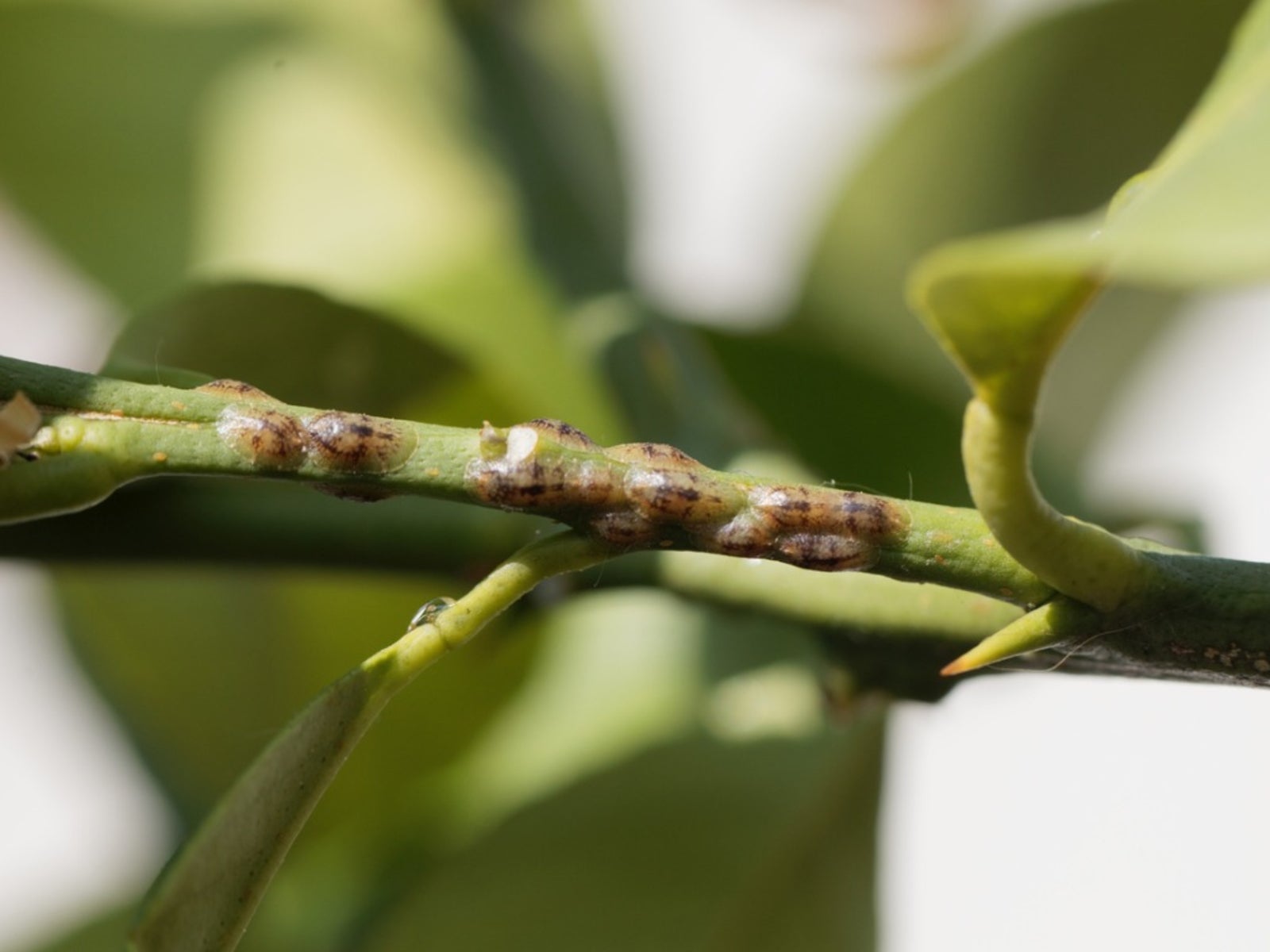
Sign up for the Gardening Know How newsletter today and receive a free copy of our e-book "How to Grow Delicious Tomatoes".
You are now subscribed
Your newsletter sign-up was successful
So your citrus tree is dropping leaves, twigs and branches are dying back, and/or the fruit is stunted or distorted. These symptoms may indicate an infestation of citrus scale pests. Let's find out more about citrus scale control.
What are Citrus Scale Pests?
Citrus scale pests are tiny insects that suck sap from the citrus tree and then produce honeydew. The honeydew is then feasted upon by ant colonies, further adding insult to injury. The female adult scale is wingless and often has no legs while the adult male has one pair of wings and notable leg development.
Male scale bugs on citrus look similar to a gnat, are generally not visible, and they do not have mouth parts to feed. Male citrus scale pests also have a very short lifespan; sometimes only a few hours.
What are the Types of Scale on Citrus Plants?
There are two major types of scale on citrus plants: armored scales and soft scales.
- Armored scale - Female armored scales, from the family Diaspididae, insert their mouthparts and never move again -- eating and reproducing in the same spot. Male armored scales are also immobile until maturity. These type of scale bugs on citrus exudes a protective coating made up of wax and cast skins of prior instars, which creates its armor. These citrus scale pests not only wreak the havoc mentioned above, but the armor will also remain on the plant or fruit long after the insect is dead, creating disfigured fruit. Types of scale on citrus plants in the armored scale family may include Black Parlatoria, Citrus Snow Scale, Florida Red Scale, and Purple Scale.
- Soft scale - Soft scale bugs on citrus also form a protective coating via wax secretion, but it is not the hardened shell that the armored scale produces. Soft scales cannot be lifted from their shell and females roam the tree bark freely until eggs begin to form. The honeydew secreted by the soft scale attracts the sooty mold fungus, which in turn covers the citrus leaves preventing photosynthesis. Once dead, the soft scale will fall from the tree instead of remaining stuck as the armored scale. Types of scale on citrus plants in the soft scale group are Caribbean Black Scale and Cottony Cushion Scale.
Controlling Citrus Scale
Citrus scale control can be accomplished with the use of pesticides, biological control via the introduction of indigenous parasitic wasps (Metaphycus luteolus, M. stanleyi, M. nietneri, M. helvolus, and Coccophagus), and an organically approved petroleum spray.
Neem oil is also effective. When utilizing any pesticide for controlling citrus scale, follow manufacturer's instructions and spray the entire tree until it is dripping wet. When controlling citrus scale, one may also need to eliminate the ant colonies, which thrive upon the honeydew extruded from the scale.
Ant bait stations or a 3 to 4 inch (8-10 cm.) band of “tanglefoot” around the trunk of the citrus will eliminate the ant marauders. Citrus scale pests can spread rapidly as they are highly mobile and may also be transported on clothing or by birds.
Sign up for the Gardening Know How newsletter today and receive a free copy of our e-book "How to Grow Delicious Tomatoes".
The best and first line of defense in controlling citrus scale is to buy certified nursery stock to prevent infestation from the get go.

Amy Grant has been gardening for 30 years and writing for 15. A professional chef and caterer, Amy's area of expertise is culinary gardening.
